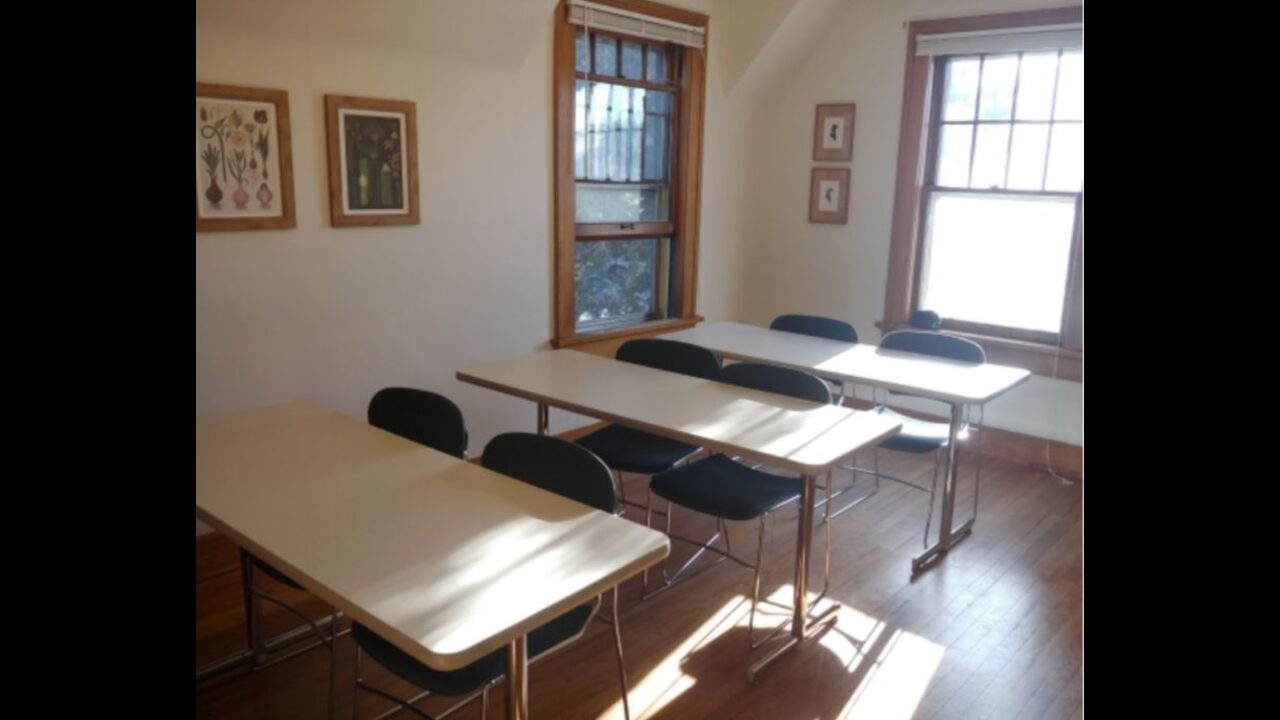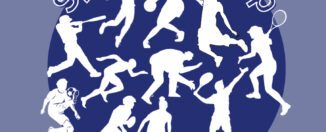Trinity Academy brings high school students back to Concordia
Photo description: The room at Trinity Academy used for math and science classes
Photo credit: Josiah Horvath
Josiah Horvath
Sower Staff
Trinity Academy, a classical Lutheran high school, opened this fall on the Concordia campus, offering students a classical education in light of Scripture.
Classical education is a tradition of education that emphasizes the search for truth, goodness and beauty through liberal arts and the great books. The seven liberal arts historically include the study of grammar, rhetoric, logic, music, geometry, arithmetic and astronomy. The great books, known sometimes as the “great conversation” include the timeless classics of western culture in literature and philosophy, from the ancient Greeks to the present age.
Concordia had a traditional Lutheran high school on campus for decades, but it closed in 1972 and high school classes had not been offered since then.
Trinity Academy is located in a former faculty house at the northwest corner of the Concordia campus between the Global Opportunities Center and Guest Housing. It currently has five students between grades nine and 10, but additional students in grades 11 and 12 are expected in the future. Tuition is $3,600 per year, with family rates offered to those who have enrolled multiple students. The school
will be pursuing accreditation from the National Lutheran School Association and the Consortium for Classical Lutheran Education.
The original model was to have 10 students per class, adding up to 40 students total
among the four grade levels. Dr. Gabriel Haley, Trinity Academy headmaster and professor of English at Concordia, said that when the school reaches 40 students they will reassess to determine whether or not class sizes should continue to grow.
Jessica Gubanyi is a parent considering sending her children to Trinity Academy.
“I love small class sizes; I love that they’re just more intimate. But I think the lack of activities might be a deterrent,” Gubanyi said, “so if they don’t have a way to play sports or be in activities like music, that might be a deterrent. We’ll have to see how they grow and what kind of things they add over time.”
She added that she is curious to see if Trinity can form relationships with other high schools.
Trinity Academy is commonly referred to as a microschool, that is, a small school with small, intimate classes.
“There are great benefits to being small, but I wouldn’t say it was essential to our original vision,” Haley said. “When you grow larger there are a lot more needs: more teachers, more space, more money. There’s the question of what’s most practical, but also what’s best for the students’ educational environment.”
Trinity Academy is an institute of Concordia. This means Trinity Academy has access to Concordia’s resources and that Trinity Academy is run by Concordia.
Concordia students may do field work, have classroom observations and do a practicum at Trinity Academy. This helps those seeking the new Classical Lutheran Educator Certificate offered at CUNE.
“One of the great things about being an institute is that we have opportunities to bring in professors part-time to teach a single class,” said Haley. “The students can take advantage of the great expertise of Concordia.”
He said students from Trinity Academy use the science labs in Dunklau and take music theory in Borland.
“Our teachers are amazing here. I’ve been learning a lot,” said Vesper Haley, a student at Trinity Academy and daughter of the headmaster. “We get a lot of attention.”
Trinity Academy borrows from the Classical Academic Press, a classical education curriculum especially for the sciences. For the humanities, it uses a great books curriculum, focusing on the study of the humanities through the great works of western culture.
Vesper Haley said the class recently read the “Epic of Gilgamesh” and is learning ancient history, including that of the Sumerians and the Egyptians. Students also take theology, Latin, geometry,
biology, music theory, art and physical education.
“We want to foster those great conversations about philosophy,” said Trinity’s humanities teacher Andrew Bloch. “Part of the teaching is making sure they know the material, because you do need to know material in order to have the conversation, but then also leading them in the direction of being able to delight in great conversations.”
Each week, Bloch leads the students in “Thinking Thursday.” He teaches them about a philosopher and the class discusses philosophy in the Humanities Room, the only classroom on the ground level of the Trinity Academy building.
Bloch said the Humanities Room is conversation-based. The table in the room is circular, and the room itself has a relaxed atmosphere.
“We want them to feel like they can join the conversation,” Bloch said. “Those really deep questions, the nature of the universe – if I taught those in the normal style and not a conversational style, they’d be very boring.”
Gabriel Haley said fundraising for the school is continuing. “One of our goals is to keep tuition low so that as many people can come as possible,” he said.





















